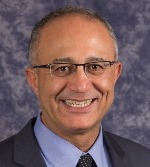The Connected Future Business Culture:
The Great Project Management Accelerator
SERIES ARTICLE
By Dr. Harold Kerzner
Senior Executive for Project Management
The International Institute for Learning (IIL)
New York and Florida, USA
and
Dr. Al Zeitoun, PgMP, PMI Fellow
Global Future of Work Executive
Siemens DISW
Ohio & Maryland, USA
Introduction
Every year, more people graduate from college and enter the field of project management. Most of these people learn modern project management practices in the classroom but may be unfamiliar with the developments in project management and the problems that modern estimating and project management practices are trying to resolve. To understand the changes that have been taking place, and the reasons why certain topics are frequently discussed in periodicals, one must understand the issues we faced initially and how we tried to resolve them, in many cases unsuccessfully until now. For the remainder of this paper, we will reflect on the topic of estimating and associated data sources and systems.
This is one of the topics that directly contribute to the success of organizational planning efforts. The changes that have been taking place in business and in the way of working of programs/projects have led to an unprecedented level of uncertainty that make the topic of estimating and the associated risks central to the success of the strategic initiatives.
In this article, we also discuss several aspects of the information warehousing growth that drive companies towards the consistent application of Business Intelligence (BI) Systems. It is in our view that digitally enabled estimating requires innovation in order to create a commercially successful product, which also means that the team members must understand the knowledge needed in the commercialization life cycle starting from the early projects’ stages.
THE ESTIMATING CHALLENGES_________________________________________
During the past 20 years, there has been a significant growth in research surrounding effective project management and estimating techniques. Most of the research focused on functional related estimating and how to build on the expertise and knowledge base of organizations. The tendency across organizations is to standardize and try to achieve a methodology or a framework that all could follow across organizational verticals. The use of the one-size-fits-all methodology became common practice for many companies for perhaps more than two decades. What many people failed to realize, either intentionally or unintentionally, was the type of projects that were “forced” to use the methodology. Projects with well-defined requirements and well-written business case, whether prepared by the client or the contractor, could be successfully estimated, planned, and executed using the one-size-fits-all approach. These were considered as traditional projects. But what about the growing percentage of nontraditional types of projects that may not be well-defined, such as innovation, digital transformation, R&D, and business strategy initiatives? These projects may be initiated based just upon an idea.
There were several issues that began to surface regarding these nontraditional projects:
- The nontraditional project had a much greater impact on long-term competitiveness and profitability than did the traditional projects but data did not exist to support effective estimating
- Many of the decisions made by the functional managers on the nontraditional projects focused heavily upon short-term profits that could impact the functional manager’s year-end bonus
- Personal agendas and functional unit objectives were becoming more important than the long-term best interests of the organization
- In some studies, as much as 80 % of the nontraditional projects did not deliver part or all of the business benefits and value expected
- Articles appeared identifying the benefits of using project management and estimating practices, but the majority of the articles focused on traditional rather than nontraditional projects
More…
To read entire paper, click here
How to cite this paper: Kerzner, H. and Zeitoun, A. (2022). The Digitally Enabled Estimating Enhancements: The Great Project Management Accelerator series, PM World Journal, Vol. XI, Issue VII, July. Available online at https://pmworldlibrary.net/wp-content/uploads/2022/07/pmwj119-Jul2022-Kerzner-Zeitoun-Digitally-Enabled-Estimating-Enhancements-series-4.pdf
About the Authors

Harold Kerzner, Ph.D., MS, M.B.A
Senior Executive Director for Project Management
International Institute of Learning
New York & Florida, USA
![]()
Dr. Harold Kerzner is Senior Executive Director for Project Management for the International Institute for Learning (IIL). He has an MS and Ph.D. in Aeronautical and Astronautical Engineering from the University of Illinois and an MBA from Utah State University. He is a prior Air Force Officer and spent several years at Morton-Thiokol in project management. He taught engineering at the University of Illinois and business administration at Utah State University, and for 38 years taught project management at Baldwin-Wallace University. He has published or presented numerous engineering and business papers and has had published more than 60 college textbooks/workbooks on project management, including later editions. Some of his books are (1) Project Management: A Systems Approach to Planning, Scheduling and Controlling; (2) Project Management Metrics, KPIs and Dashboards, (3) Project Management Case Studies, (4) Project Management Best Practices: Achieving Global Excellence, (5) PM 2.0: The Future of Project Management, (6) Using the Project Management Maturity Model, and (7) Innovation Project Management.
He is a charter member of the Northeast Ohio PMI Chapter.
Dr. Kerzner has traveled around the world conducting project management lectures for PMI Chapters and companies in Japan, China, Russia, Brazil, Singapore, Korea, South Africa, Canada, Ireland, Germany, Spain, Belgium, Poland, Croatia, Mexico, Trinidad, Barbados, The Netherlands, Sweden, Finland, Venezuela, Columbia, United Arab Emirates, France, Italy, England, and Switzerland. He delivered a keynote speech at a PMI Global Congress on the future of project management.
His recognitions include:
- The University of Illinois granted Dr. Kerzner a Distinguished Recent Alumni Award in 1981 for his contributions to the field of project management.
- Utah State University provided Dr. Kerzner with the 1998 Distinguished Service Award for his contributions to the field of project management.
- The Northeast Ohio Chapter of the Project Management Institute gives out the Kerzner Award once a year to one project manager in Northeast Ohio that has demonstrated excellence in project management. They also give out a second Kerzner Award for project of the year in Northeast Ohio.
- The Project Management Institute (National Organization) in cooperation with IIL has initiated the Kerzner International Project Manager of the Year Award given to one project manager yearly anywhere in the world that demonstrated excellence in project management.
- The Project Management Institute also gives out four scholarships each year in Dr. Kerzner’s name for graduate studies in project management.
- Baldwin-Wallace University has instituted the Kerzner Distinguished Lecturer Series in project management.
- The Italian Institute of Project Management presented Dr. Kerzner with the 2019 International ISIPM Award for his contributions to the field of project management.
Dr. Harold Kerzner can be contacted at hkerzner@hotmail.com

Dr. Al Zeitoun, PgMP, PMI Fellow
Global Future of Work Executive
Siemens DISW
Ohio & Maryland USA
![]()
Dr. Al Zeitoun is a Future of Work, business optimization, and operational performance excellence thought leader with global experiences in strategy execution. His experiences encompass leading organizations; delivering their Enterprise Digital and Business Transformation; guiding fitting frameworks implementations; and using his empathy, engineering insights, and collaboration strengths to successfully envision new business models and execute complex missions across diverse cultures globally.
In his current role with Siemens, he is a Senior Director of Strategy responsible for driving the global program management practices, Master Plan governance, and enabling the Strategy Transformation priorities.
In his position, as the Executive Director for Emirates Nuclear Energy Corporation, Abu Dhabi, UAE, he was responsible for creating the strategy execution framework, achieving transformation benefits, governance excellence, and creating the data analytics discipline necessary for delivering on the $40B complex country energy mission roadmap.
At the McLean, USA HQ of Booz Allen Hamilton, Dr. Zeitoun strategically envisioned and customized digitally enabled EPMO advisory, mapped playbooks, and capability development for clients’ Billions of Dollars strategic initiatives. Furthermore, he led the firm’s Middle East North Africa Portfolio Management and Agile Governance Solutions.
With the International Institute of Learning, Dr. Zeitoun played a senior leader and global trainer and coach. He was instrumental in driving its global expansion, thought leadership, and operational excellence methodology to sense and shape dynamic ways of working across organizations worldwide. He speaks English, Arabic, and German and enjoys good food, travel, and volunteering. Dr. Al Zeitoun can be contacted at zeitounstrategy@gmail.com









